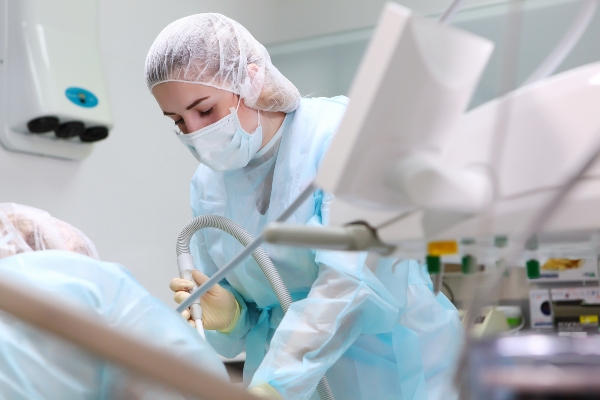 Finding the right dentist for kids can have a lasting effect on how your child feels about the dentist’s office. Good experiences with a pediatric dentist can guarantee that the child grows up with good oral habits. The child can become an adult with healthy teeth and uneventful dental visits.
Finding the right dentist for kids can have a lasting effect on how your child feels about the dentist’s office. Good experiences with a pediatric dentist can guarantee that the child grows up with good oral habits. The child can become an adult with healthy teeth and uneventful dental visits.
So, where should a parent start in the effort to find their child a capable and friendly pediatric dentist? Also, when should the child make their first visit to a kids’ dentist? Keep reading to find out the role of a kids’ dentist in the long-term oral health of young patients.
Dentist for kids: What to look for in a pediatric dentist
A pediatric dentist has the specialized training necessary to treat conditions unique to children. They learn how to deal with the diverse needs of child patients, which goes a long way toward putting them at ease during treatment. A kids’ dentist is in a position to offer care at every stage of a child’s development. Parents should see that the ideal dentist for their child checks the following boxes:
- Pediatric dental practices should be inviting and child-friendly, with the décor to match
- A pediatric dentist should have a way with children, with the ability to adjust to the child’s needs, mood, and personality
- The dentist should have tools and techniques to put children at ease in the dentist’s chair
These broad guidelines act as a starting point in the caregiver’s search for a children’s dentist. But when and how often should a child see the dentist?
A child’s first dental visit
A child should have their first visit with the dentist right around the time that they start teething. Parents can schedule the baby’s first dentist appointment within six months of the eruption of their first baby teeth. Alternatively, take the child to see the dentist at 12 months if their first teeth fail to erupt by then.
This visit should be more of a meet and greet, so caregivers and the baby can become familiar with the dentist. More importantly, these early visits enable the dentist to pass on the following helpful information:
- An oral hygiene routine for infants and toddlers
- Advice on bottle feeding and the use of pacifiers
- Diet tips to keep the child’s mouth healthy
- How to deal with habits like thumb-sucking
- A general timeline of developmental milestones
This first meeting is also an opportunity for caregivers to ask the dentist any questions that they may have.
Follow-up routine visits
A child should see a kids’ dentist once every six months, barring some sort of dental or oral health issue that necessitates more frequent visitations. These routine visits enable the dentist to monitor the growth and development of the child’s entire oral cavity. They are also important as an early warning system if the child develops an oral health issue. Parents should also visit the child’s dentist when they notice an issue with their child’s teeth and gums.
Children should stick with a kids’ dentist until all their permanent teeth come in. A pediatric dentist can see patients through their late teenage years. The patient will tell their parent or caregiver when they are ready to switch to a general dentist.
Pediatric dental care whenever your child needs it
Our pediatric practice has a dentist for kids who cares for young patients of all ages. Get in touch if you are near Middletown to find out more.
Request an appointment or call Hudson Valley Pediatric Dentistry at 845-363-4177 for an appointment in our Middletown office.
Recent Posts
A child dentist can help your child achieve better dental and general health. Regular visits allow your child to get used to dental checks, tools, and equipment. Dental fear disappears, and the young patient can continue having a bright, painless smile. Here are what parents like you should look forward to during child dentist appointments.Choosing…
Cavity treatment for kids is essential for a child’s oral health. Dental decay can cause discomfort, causing the child to lose focus at school. It can even result in low self-esteem and malnutrition. Treating cavities can improve your child’s general health. Here are effective techniques for cavity treatment for kids.There are cases when fillings cannot…
Parents play a crucial role in their children's tooth care by ensuring their children get started on the right path to optimal dental health. This involves overseeing children's tooth care at home while also helping them develop healthy dental habits and ensuring they see a pediatric dentist regularly.Parents will need to keep their child's mouth…


